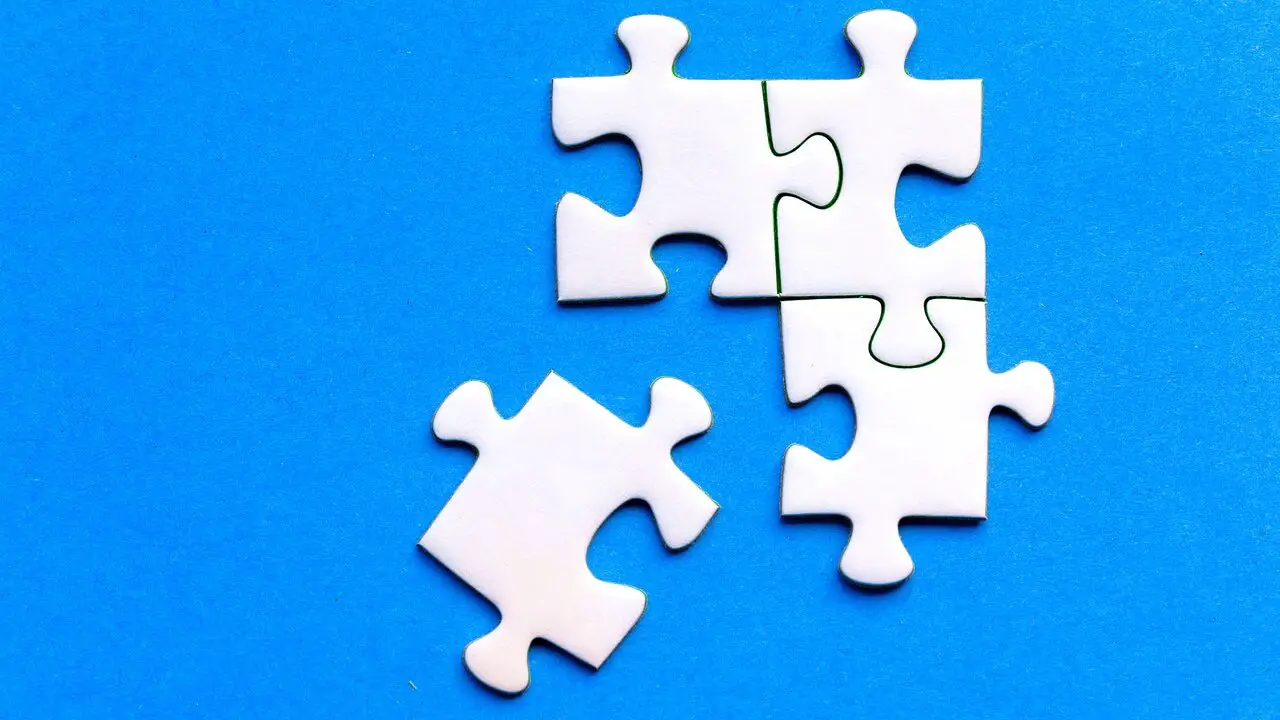
When you’re working on improving your emotional wellbeing as your personal goal, one fact you have to know is that, it’s a lifetime task and so mistakes could and will come across your way. Question is, how will you handle those mistakes?
Emotions are like fire, takes no time to start, and doesn’t get extinguished instantly. That’s why improving the emotional wellbeing skills of identifying, controlling, and managing your emotions is key to living more delightful life.
Previously we talked about the “5 things you need to know about emotional wellbeing“, and the “17 tools you can use to improve your emotional health and maturity“.
Today I will focus on the 9 emotional wellbeing mistakes that you need to avoid and the solutions to each mistake as you work on boosting your emotional wellness and emotional intelligence skills.
This will help you benefit the following:
1- Boost your emotional maturity
2- Maximize the happiness portion in your life.
3- Improve your Mental Health and wellbeing
Ready!.. Let’s go
Content Covered Today:
1- Stop learning about emotional wellbeing

As I said in the introduction, emotional wellbeing is a lifetime worth of learning skill. There’s always going to be changes to the way we interpret handle emotions.
That’s why it’s crucial to keep yourself updated with what’s going on in the emotional wellbeing dimension.
Taking couple of courses or reading few books is good to get you started and it’s even better to repeat that course of action later in your life.
Solution:
To keep a mindset of ignorance to the topic, so your cup isn’t full and is ready to have more knowledge. I’m not saying to have a weekly or a monthly or even a yearly checkpoint with yourself and do more learning.
2- Becoming too cautious about showing your emotions

Sometimes my coaching clients, and friends I know, start to be more cautious to display their own feelings after they learn a thing or two about self-awareness and self-management from the Emotional Intelligence Toolkit
I’m not immune either, and I find myself vulnerable to that mistake myself from time to time, so even teachers and coaches need a reminder. Just to make you at ease.
Having higher emotional intelligence skills, doesn’t mean that we need to suppress or hide our emotions and feelings.
On the contrary, it means that we can now show them more often in a healthier way
Last time I checked, we are still human beings, not robots, so handling emotions isn’t as easy as using “ctrl+alt+del” to the negative emotions or using the “find and replace” feature in word, to find negative emotions like sadness, misery, boredom and replacing them with positive emotions like happiness, joy, excitement.
Emotional wellbeing is about managing emotions, not burring them.
Solution:
1- Practice showing your emotions on small trusted circle of friends
2- Use the trial and error strategy. Try one thing, and if it didn’t work out, learn from it and improve on it.
3- Use Resilience. Keep reminding yourself that you’re doing the best you can to be the better version of yourself and one day you’ll nail that technique you’re trying to do
3- Worrying about offending people.

I always say that emotions are a type of communications, the non verbal one. And in communication, you have at least one person to communicate with, so from what I see, there are 4 elements in that communication that I call the communication cycle:
1- Your action/words/emotions
2- The other person’s reaction(s) to your actions/words/emotions
3- The other person’s action/words/emotions in response to their reaction(s)
4- Your reaction(s) to the other person’s action/words/emotions.
I always teach the following % of how well can you control the above 4 elements, and remember that this is my personal opinion:
You have 100% control, or should have, of points 1 and 4. Your action and reactions.
You have, or should have about 80% to point 2. The other person’s reaction to your emotions
You have less than 20% control to point 3. The other person’s action based on his reactive emotions.
Look at the percentages above and tell me what do you see?
My point behind these percentages is that we can and should control our acting and reacting emotions. This is what emotional wellness and emotional intelligence skills are for.
With mastering the art of managing your emotions, the ones starting the communication and the reactive ones, you can to a high degree, influence the other person’s reacting emotions in response to yours, and there for, steering their actions to a more positive side.
With that being said, the actions the other person does, isn’t totally in your grip, and when you find that that action isn’t in the best interest of the communication then you take it backwards.
This means that the reactions the other person got from your actions is different from what you expected and therefor you may need to fine tune that emotion you used or explain what you meant by it.
The point that I’m trying to drive home here is that, you only need to worry about sending others the right messages the right way, not how they react to.
Solution:
Same solutions for mistake 3. Practice, Trial and Error, and Resilience
4 – Feeling guilty about your emotions

Now, there are 2 sides to that point.
4.1 – If your emotions are right:
Some situations in your daily communication can cause you to be angry or sad or annoyed, and that’s fine provided that it’s the right reacting emotions to the cause.
If you got attached at work for no reason, you have the right to be angry. The benefit of having emotional intelligence as a skill in this situation is to express that anger in the right way, say be using your words, instead of your fist.
Feeling angry is not a mistake or an emotional limitation, it’s a natural response to such stimulant.
4.2: If your emotions are wrong:
Let’s say that your colleague said something funny and everyone laughed and you got angry cause you thought it’s a joke on you, only to find out later that this wasn’t what he meant and everyone got that but you.
Now you used a wrong emotion that, in most cases, will case a negative chain of reactions in the communication cycle above.
Do you feel guilty about that “wrong” feeling?
Well, there’s no right or wrong answer here. Some would say you don’t have to since it was an innocent mistake, and some would argue that it was your fault so you should be feeling guilty.
My answer would be, that guilt is an emotion in itself and it’s a natural response to such stimulant (unnecessary anger) and we’re human beings as mentioned earlier. So put all of these together and the result would be:
A little % of guilt, that is enough to cause you to correct that situation by apologizing or whatever is okay.
Solution:
1- Resilience for when your feelings are right. You need to remind yourself of times you were able to manage your emotions in similar situations
2- Correction for when your feelings are wrong. You need to correct whatever damage that may have happened as a result to your passive emotions based on your wrong assessment. An apology could work for most of it.
5- Avoiding risks

Research tells us that as we gain more experience, “grow older,” our brains approach risk-taking differently and we may take fewer risks as a result. Simply put, we get easily scared.
In my opinion, learning about emotional wellbeing is a way for you to learn more about yourself and your emotions and the more self-aware you become, the more collaboration opportunities and trying new things will be available
Solution:
Embrace the growth mindset and keep on going.
6- Emotional Wellbeing is the solution to everything

Indeed we said the 90% of top performers have high EQ, but that doesn’t mean they don’t have other hard skills to advance in their careers.
For example, Emotional intelligence won’t help you grow your programming skills, you have to learn the know how for that
Being empathetic won’t help you get promoted without having project management skills
That’s why hard skills are sill needed along with the soft skills. It’s a balance between the two.
Solution:
Always make sure you learn the hard skills needed for the job at hand
7- Blaming your emotions on others

“I feel annoyed because of what John did yesterday”
“If you have lowered your voice while I was on the phone, I wouldn’t get so angry”
Identifying the trigger of the emotion is one thing, and blaming others for still having the emotion is a totally different thing.
Emotional health is about understanding the causes of the negative emotions to minimize or eliminate them, and about managing that emotion once surfaced because you are ultimately responsible for what you feel and what you do with that feeling.
Looking outside of yourself and criticizing others is just another way to avoid managing what you feel, so stay out of it.
Also you can use the Stephen R. Covey cycle of concern and cycle of influence to guide you here. The more you add to the cycle of influence (things you can manage) the better you’re life will be compared to adding to the cycle of concern (things you can’t control)
Solution:
Do your best of internalizing the causes (make it about you) and let it be your responsibility to fix them, as the examples below:
- Instead of “he said stupid things“, make it “I wasn’t able to control my temper“, so this means that you have to think of ways to better control your temper and anger
- Instead of “he yelled at me“, make it “I didn’t understand why he was upset“, so this means that you have to adopt better social skills to understand the other person.
8- Focusing only on emotional intelligence

I totally understand that when you hear emotional wellbeing, you immediately think of emotional intelligence and you start looking for courses and books to read about that topic to boost your emotional health but that’s not enough.
But emotional intelligence is only part piece of the bigger emotional wellbeing puzzle
As previously mentioned in the 17 tools to improve your emotional wellbeing, there are 2 other toolkits than the emotional intelligence one, the happiness toolkit and the venting toolkit, and both are extremely important as the emotional intelligence one.
In fact, the happiness toolkit alone includes 10 tools and I recommend giving thoughts about utilizing them as well. Not all, but some.
Examples from that happiness toolkit includes, nutrition, and sleep. And regardless how much emotional maturity you have, being low on sugar, will increase the likelihood of snapping to someone who just told you “how is it going buddy?”
Being sleep deprived will also increase the likelihood of having more negative emotions either directly or as a consequence to lack of focus.
Solution:
Diversify the tools you use to improve your emotional wellness as stated in the “17 tools to improve your emotional wellbeing” article.
Basically you need at least 1 tool from each of the 3 toolkits to deal with different levels of emotional crisis.
9- Failing to ask people to support you

Working your way in the emotional wellbeing development is just like improving your swimming skills. Both need external support from your true connections.
That’s why in the “17 tools to improve your emotional wellbeing“, there are the “connection” tool in the Happiness Toolkit, and the “asking for support” tool in the venting toolkit, and both are about support in mild and moderate to server emotional crisis respectively.
There is no stigma about seeking more happiness or understanding others better. We all want that, right! 😀
And I guarantee you, that many of your friends, colleagues, neighbors are interested in upgrading their emotional health and you can support each other along the way.
Imagine your community with higher levels of happiness, joy, understanding, and supporting
Solution:
1- Work on building true and trusted personal social connections that you can be around frequently. Those can include your family, friends, neighbors, and colleagues.
2- Work on building professional social connections for moderate to severe emotional crisis situations. Those can include coaches, therapists, psychiatrists, and psychologists.
Conclusion
- Emotions are like fire, takes no time to start, and doesn’t get extinguished instantly.
- emotional wellbeing is a lifetime worth of learning skill
- Having higher emotional intelligence skills, doesn’t mean that we need to suppress or hide our emotions and feelings.
- You have total control of your actions and reactions, high control of others reaction, and minimal control of others actions
- Emotional wellbeing doesn’t solve all your problems, other skills matter too.
- Blaming others for not controlling your emotions is a weak excuse and you have total responsibility over that, plus it would do you more harm in the long run
- Emotional intelligence (EQ) is only one toolkit that can support you in boosting your emotional wellbeing. Happiness and venting toolkits are important too and you need to have them as well.
- Seeking support is recommended as it helps you managing mild and moderate to severe emotional crisis.
Resources
The WellBeing Coaching
We can interact with each other 1 on 1 using the WellBeing Coaching, and come up with a specific plan just for you and tack it down till its completion